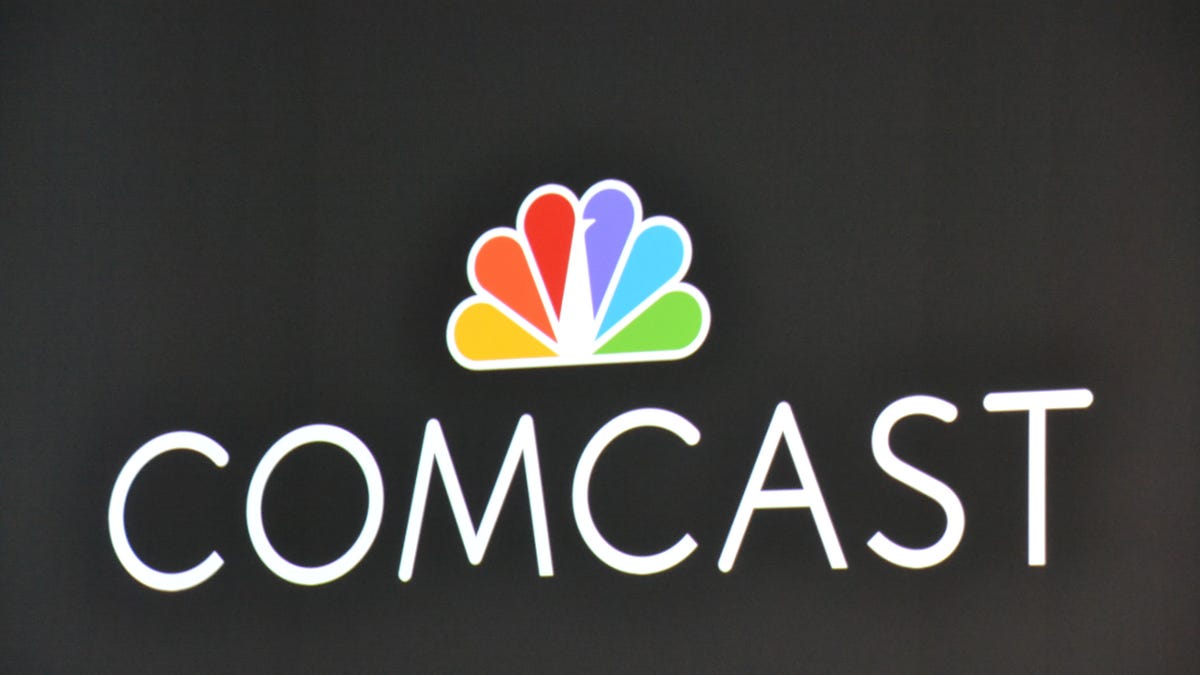Comcast said to be buying Time Warner Cable for $44.2B
Media giant to pay $159 per share for the cable company, a 17.5 percent premium, according to CNBC's David Faber.

Comcast will announce Thursday that it has agreed to purchase Time Warner Cable for $44.2 billion in stock, according to a report late Wednesday by CNBC's David Faber.
The media and communications company will reportedly pay $159 per share for the cable company's 277.9 million outstanding shares, a 17.5 percent premium over Time Warner Cable's closing price of $135.31 on Wednesday. Comcast is willing to divest itself of 3 million subscribers in an effort to head off any regulatory objections to the deal, sources told Faber.
Comcast to buy Time Warner Cable in all stock deal worth $159 per $TWC share- sources. Deal set for tomorrow morning. Ratio is 2.875 $CMCSA.
— DAVID FABER (@davidfaber) February 13, 2014Time Warner Cable declined to comment on the report. CNET has also contacted Comcast for comment and will update this report when we learn more.
If approved, the deal would expand Comcast's cable empire from 21 percent to 33 percent of all US pay TV homes in the nation, serving 33 million customers across the country, and adding huge metro markets like New York and Los Angeles to Comcast's already large footprint. Comcast already serves major markets such as Chicago; Boston; Washington, D.C.; Philadelphia; Detroit; Houston; and Denver.
The reported deal comes less than a month after Time Warner Cable spurned an acquisition offer from Charter Communications valued at more than $61 billion including debt. Time Warner Cable CEO Rob Marcus rejected Charter's $132.50-a-share bid, calling it a "low-ball offer" in an interview with Bloomberg.
The deal, which has been much-rumored to be in the works for months, is likely to be heavily scrutinized by regulators. While the Justice Department is usually responsible for antitrust reviews of large corporate mergers, this deal is likely to come under the scrutiny of the Federal Communications Commission, according to equities analyst Paul Gallant of Guggenheim Securities.
In a research note to investors last November, Gallant reasoned that since Comcast and Time Warner don't compete with one another directly in any single market, an antitrust argument to block the merger is less likely. However, Comcast is already the largest cable operator in the US, and its acquisition of the second-largest cable operator could affect the public interest and as such be something that would attract the interest of the FCC.
"Over the past 20 years, Republican and Democratic DOJs have basically stopped challenging vertical mergers because courts were increasingly unwilling to accept government claims that they violated the antitrust laws," Gallant wrote. "So the FCC will be even more central in a possible Comcast-TWC deal because its 'public interest' review is broader than pure antitrust analysis."
In addition to combining communication networks, a tie-up between Comcast and Time Warner would strengthen Comcast's control in the media world. Through its acquisition of NBC Universal in 2011, Comcast is already a large owner of media content. And as the largest paid TV provider in the US, it's also the largest buyer of such content -- a point likely to ruffle more feathers in Washington than the network consolidation.
Those points were what concerned consumer group Public Knowledge, which said late Wednesday that it opposed the deal.
"If Comcast takes over Time Warner Cable, it would yield unprecedented gatekeeper power in several important markets," John Bergmayer, senior staff attorney at Public Knowledge, said in a statement. "It is already the nation's largest ISP, the nation's largest video provider, and the nation's largest home phone provider. It also controls a movie studio, broadcast network, and many popular cable channels. An enlarged Comcast would be the bully in the schoolyard, able to dictate terms to content creators, Internet companies, other communications networks that must interconnect with it, and distributors who must access its content."
CNET's Marguerite Reardon contributed to this report.
Updated at 8:45 p.m. PT with Public Knowledge comment.

